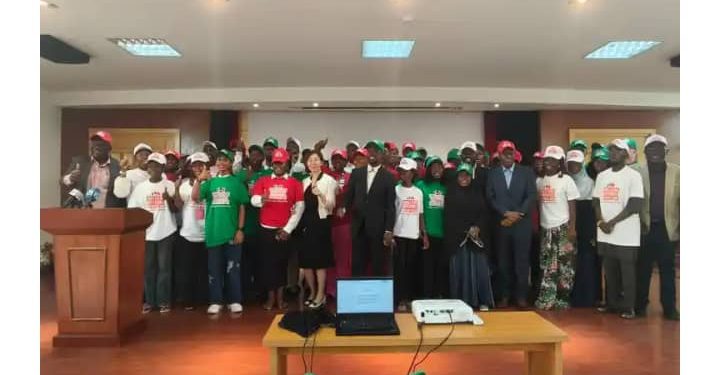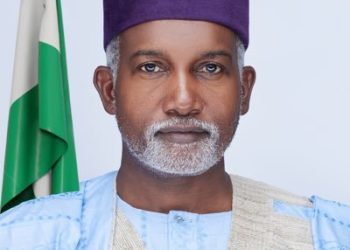By Nkechi Eze
China has pledged stronger cooperation with Nigeria and Africa under the newly launched Global Governance Initiative (GGI), reiterating its commitment to building a fairer, more inclusive international system that gives greater voice to the Global South in global institutions.
The commitment was restated in Abuja during a seminar themed “Opportunities for China-Nigeria Cooperation under GGI”, jointly organised by the Centre for Contemporary China-Africa Research and the Centre for China Studies. The meeting brought together diplomats, scholars, policymakers, and stakeholders to explore practical pathways for deepening cooperation under the new framework.
Counselor at the Embassy of the People’s Republic of China in Nigeria, Mr. Dong Hairong, explained that the initiative, unveiled by President Xi Jinping on September 1, represents “another public good that China has provided to the world.” He noted that the GGI complements the Global Development Initiative (GDI), Global Security Initiative (GSI), and Global Civilization Initiative (GCI), which together form the four pillars of China’s vision of building “a community with a shared future for mankind.”
“The current international landscape is undergoing changes and turbulences. As we can see every day, the world is far from peaceful and stable,” Dong said, citing geopolitical tensions, economic uncertainties, regional conflicts, and public health crises. He stressed that the GGI is designed to address gaps in the global governance system by encouraging joint efforts among countries and multilateral institutions.
Outlining its values, Dong explained that the GGI rests on five core principles: sovereign equality, rule of law, multilateralism, a people-centered approach, and concrete action. According to him, these concepts have received broad recognition globally and resonate strongly with Nigeria’s priorities. “China has been and is always willing to cooperate, work with African friends, including Nigeria, under the framework of GDI to build a more just and equitable global governance system,” he added.
He further underscored China’s support for reforms in the UN Security Council and international financial architecture to correct what he described as the “under-representation of the Global South” and “historical injustices.” Collaboration, he said, would extend to critical areas such as climate change, cyberspace, artificial intelligence, trade, and outer space.
Dong also invited contributions from experts and the media, saying: “We would like to hear the thoughts and insights of scholars, experts, and media friends on how to harness cooperation under the framework of GDI. I hope today’s seminar will create more thought resonance and bring new ideas for our two countries to pursue a community with a shared future for mankind.”
The Director General of the Nigeria-China Strategic Partnership (NCSP), Mr. Joseph Tegbe, reaffirmed the organisation’s support for the Global Governance Initiative, describing it as a platform for tangible progress and mutual growth.
“At the Nigeria-China Strategic Partnership office, we stand ready to work hand-in-hand with our Chinese counterparts to ensure this vision delivers concrete benefits for our people, for Africa, and for the rest of the world,” Tegbe said. “For our great country, Nigeria, the Global Governance Initiative is more than just a set of ideas, it represents real opportunities. It allows us to enhance our global relevance, drive economic growth, and deepen our long-standing partnership with China. From industrialisation and technology to infrastructure, trade, and cultural exchange, we are optimistic about the future this Initiative is paving for us.”
Director of the Centre for China Studies, Dr. Charles Onunaiju, stressed that the success of the GGI would depend on practical implementation rather than rhetoric. He called for Nigeria and China to leverage their strategic partnership, established formally in 2005, and use the existing inter-governmental committee as a platform to integrate GGI discussions and expand cooperation. “The Global Governance Initiative (GGI) will be tested in action, not just in words. Nigeria and China must go beyond dialogue to initiate strategic collaborations that deliver actionable plans advancing the Initiative,” he said.
Also speaking, the Director of the Abuja School of Social and Political Thought, Dr. Sam Amadi, urged Nigeria to combine its engagement with global initiatives like GGI with strong domestic reforms. He noted that China became rich and powerful under an international order that was not entirely favorable, but succeeded through visionary leadership and techno-industrialisation.
“China became rich and powerful under an international order that was not the best. It thrived because its leaders aligned its policies and economic programs towards high and sustained economic growth,” Amadi observed. “When we become rich and stable like China, we will make better leverage of the transformative Global Governance Initiative that China wisely promotes.”
The seminar concluded with a shared understanding that while the GGI presents an important opportunity for Nigeria and Africa to push for reforms in global institutions, its real promise lies in coupling these reforms with practical, strategic cooperation and domestic transformation.

















